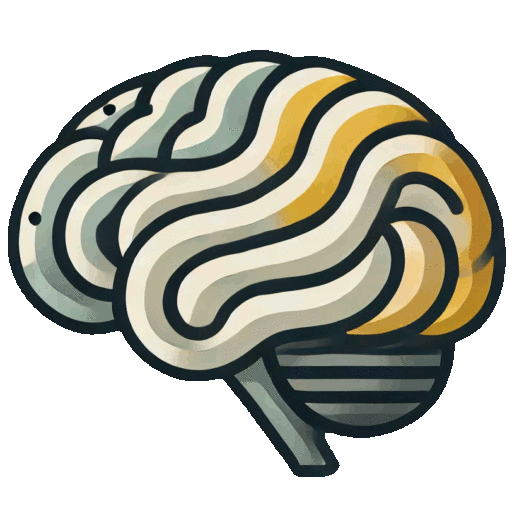
How Polarity Thinking Unlocks Self-Acceptance
Have you ever felt exhausted by the pressure to explain yourself? To justify why you can be both fiercely independent and deeply needy, or why your mind leaps between obsessive focus and utter distraction? Perhaps you’ve been called “too intense” or “too sensitive,” or maybe you’ve internalised these judgements until they’ve become your own silent mantra: “Why can’t I just be more consistent?”
In my last post, I introduced polarity management as a way to navigate these seemingly irreconcilable aspects of ourselves. But here’s what I didn’t say then: our polarities (those essential, opposing forces within us) rarely announce themselves clearly. Instead, they emerge through other people’s criticisms (“You’re so disorganised!”), our own self-reproach (“I should be more disciplined”), or even through what we mistake as irredeemable flaws (“I’m incapable of sticking to anything”). The traits we struggle with are often just one half of a hidden polarity, while its counterpart remains invisible, dismissed, shamed, or simply unrecognised.
This is why polarity management feels so revelatory when we apply it to ourselves. It isn’t about “balancing” opposites as if they were scales to be adjusted. It’s about recognising that these tensions are alive, dynamic, interdependent forces that need each other. Your chaos isn’t a failure of order; it’s the creative counterpart that order requires to mean anything at all. Your impulsivity isn’t a betrayal of your rationality; it’s the spark that keeps your reasoning from becoming stagnant. When we only see one pole, especially if it’s been pathologised by others, we’re left fighting a ghost, wrestling with half of a system that was never meant to be split apart.
How Mapping Your Polarities Works and Why It Helps
Polarity mapping isn’t about fixing yourself. It’s about seeing yourself clearly—often for the first time. Here’s what it can do for you:
- Names the Unnamed: Turns vague frustrations (“Why do I keep doing this?”) into defined tensions (“I oscillate between perfectionism and paralysis”).
- Reframes “Flaws” as Strengths: That “scattered” mind? It’s also your curiosity in motion. Your “rigidity”? It’s your precision waiting for the right moment.
- Predicts Your Needs: Once mapped, you’ll notice patterns. “Ah, when I’m overstimulated, my autistic need for structure kicks in. When I’m understimulated, my ADHD craves novelty.”
- Reduces Shame: Recognising these as natural polarities—not personal failures—dissolves guilt. You’re not broken; you’re navigating a dynamic system.
In my workshops, I guide people to map their polarities visually. Like orienteering, it gives you a reference point when you feel lost. For example:
- Criticism: “You’re so distracted!” → Polarity: Hyperfocus ↔ Broad Awareness
- Self-judgment: “I’m so messy” → Polarity: Spontaneity ↔ Order
Suddenly, behaviours that seemed random make sense within your unique neurology.
Your Invitation
If you’re exhausted by people selling you their “5 Truths That Fixed Me!”, as if neurodiversity were a puzzle with one universal solution, I get it. Here’s the radical part: this isn’t that.
Polarity mapping doesn’t hand you answers. It doesn’t assume your brain works like mine, or like anyone else’s. Instead, it gives you a way to discover your own patterns, to see where your tensions live, how they interact, and why what looks like a “flaw” might actually be half of a necessary dynamic.
This is about your map. Not mine. Not a guru’s. Yours.
When I map my polarities, I’m not searching for “right” or “wrong.” I’m creating a living reference: a way to decode my reactions when the world (or my own brain) feels confusing. “Ah, this isn’t me failing, it’s my need for structure clashing with my craving for novelty.” Over time, the map grows richer, more nuanced. It doesn’t erase the tensions; it helps me navigate them with compassion instead of shame.
Want to try mapping your own? I offer sessions and workshops where we:
- Uncover your unique polarities (no pre-set solutions, no “shoulds”)
- Turn criticism into clarity (those “flaws” probably have a hidden counterpart)
- Build your self-trust (because you—not some generic checklist—are the expert on your mind)
No prescriptive solutions. No pretending my journey is yours. Just tools to help you listen to your brain.
Comment or message me if you’re curious. Let’s ditch the one-size-fits-all and explore what your map might reveal.
P.S. Remember: A polarity isn’t a problem to solve—it’s a rhythm to learn.
#BeyondTemplates #NeurodiverseMapping #PolarityNotPrescription #AuDHD #ADHD #Autism #SelfKnowledge #NoQuickFixes
